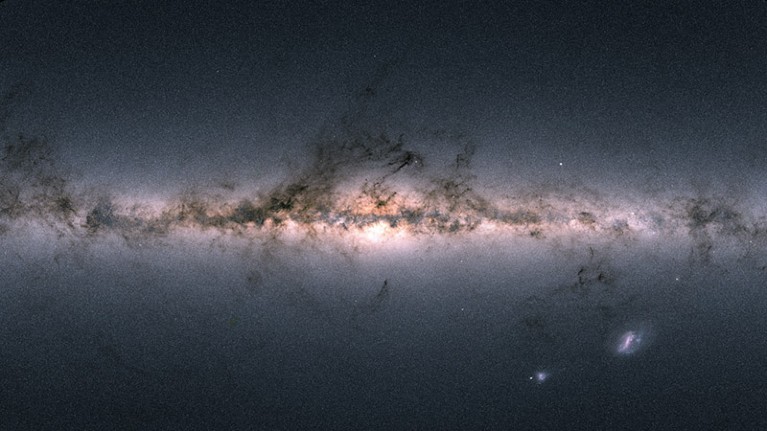Hello Nature readers,
Hello Nature readers, this is the news that matters in science today. You can also sign up to get it free in your inbox.

Credit: Wang Quanchao/Xinhua via Zuma
First ever plant grown on the Moon
China’s Chang’e-4 mission has become the first ever to grow plants on the Moon. The cotton seed sprouted in a mini-biosphere experiment that also contained nutrients, air, water, yeast and fruit-fly eggs. The lander had already secured its place in the record books on 8 January, when it became the first craft to make a soft landing on the far side of the Moon.
Super-collider plan will dwarf the LHC
CERN has unveiled its bold dream to build an accelerator nearly four times as long as its 27-kilometre Large Hadron Collider — currently the world’s largest — and up to six times more powerful. After the LHC’s historic discovery of the Higgs boson in 2012, the collider has not discovered any other particles, prompting physicists to dream of even higher energies.
WHO calls out ‘vaccine hesitancy’ as top-10 health threat
Anti-vaccination sentiment joins deadly air pollution, Ebola and antibiotic resistance as one of the World Health Organization’s top 10 priorities in 2019. “The reluctance or refusal to vaccinate despite the availability of vaccines threatens to reverse progress made in tackling vaccine-preventable diseases,” says the group.
Newsweek | 5 min readReference: Ten threats to global health in 2019
FEATURES & OPINION

Credit: ESA/Gaia/DPAC
Meet the real Milky Way
The Gaia spacecraft’s unprecedented map of the Milky Way has revealed hidden drama in its past: our Galaxy has been shaped by a smash-up with a colossal companion between 8 billion and 11 billion years ago. Nature discovers how Gaia’s spectacular haul of data about our cosmic home has painted a picture of a Milky Way that is much more dynamic and complex than previously imagined.
How to win public support for a global carbon tax
Charges on emissions could be more popular if the money is given back to citizens, argue economist Stefano Carattini and climate scientists Steffen Kallbekken and Anton Orlo. They surveyed almost 5,000 people in 5 countries and found support for a global system of carbon taxes in which countries retain control over the revenues.
How to make a great science podcast
Find your niche, learn how to promote — and invest in a good microphone. Those are just some of the top tips to make your science podcast stand out.
A text message’s tale
The path of a text message from his wife, sitting just downstairs, prompts digital humanities scholar Scott Weingart to delve into the technology and history of the SMS. From how touchscreens work to why phone numbers are encoded in “pig latin for numbers”, Weingart explores how we get the message.
